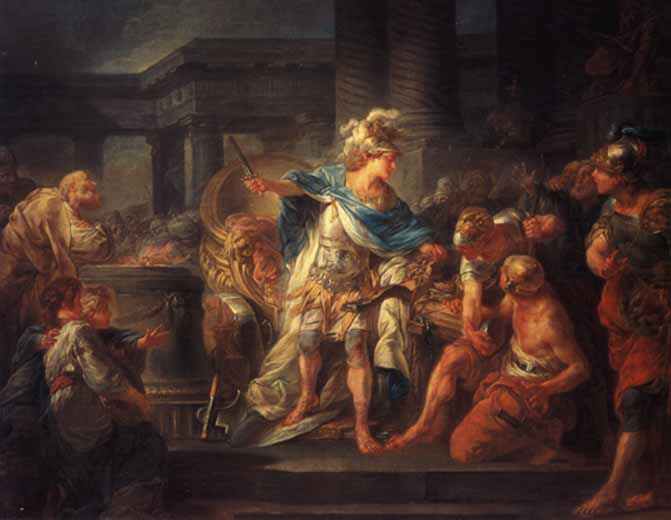Here I’m going to summarize theologian John Frame’s views on Christianity and government.
It’s helpful to recognize that a respected theologian shares the basics of the view I’m advocating and to see how he derives his view from Scripture. His discussion makes a good starting point to orient us to what Scripture says on the issue.
The Concept of State
In his article “Toward a Theology of the State” Frame examines whether the concept of “state” is even scripturally supported. He rejects the Anabaptist view that the state is a Satanic institution, but he also says, “I consider it somewhat misleading to talk about a ‘divine institution of the state,’ or to speak of ‘family, church and state’ as ‘God’s institutions,’ on a level with one another.”
While Scripture does officially establish the institutions of church and family, it seems that the state is an institution of a different sort. Frame writes, “State authority is essentially family authority, developed and extended somewhat by the demands of number and geography. Thus I believe we may eliminate from our consideration… (the view of) state as a distinct institution ordained by God, with powers and responsibilities different from those of the family.”
Frame points out that the authority of the state is only an extension of the authority of the family. In Gen. 9:6 God gives families the responsibility to enforce the death penalty upon those who commit murder. The family is the “instrument of justice.”
The Need for a State
Tracing the development of ancient Israel from families to clans to tribes, Frame shows that the need for a state arises as societies grow. Whereas in a family the father or patriarch has the position of judging between disputes, when several families live together it becomes necessary to recognize someone as an arbiter should conflicts arise. The larger the society, the more levels of arbitration will be required, as seen in the case of Moses and his father-in-law in Exodus 18.
Frame writes, “We have no reason to believe, therefore, that any special institution beyond the family for the establishment of justice was created in Gen. 9:6. What we see in Scripture, rather, is a kind of gradual development from family authority to something which we would tend to call a state. The borderline between family and state is not sharp or clear.”
Frame thus sees the state as an extension of familial authority structures. “The state, as a tool for resolving disputes, is essentially a system of appeals courts.”
The State as Judge
Throughout Scripture, to be a ruler or king is associated with the role judging. “Give us a king to judge us,” said the people in 1 Sam. 8:6. This judging consists of maintaining peace by the just use of physical force, as seen in Rom. 13:1-7 and Pet. 2:13-17. To accomplish this purpose, the people may need to pay taxes to the government. But these taxes are to be used for the peace-keeping role.
In his article “The Bible and Joe the Plumber,” Frame explains that God “never authorizes government to own a nation’s means of production, or to control its economy. The ownership of resources is in the hands of individuals and families.”
Instead, Scripture assumes the principle of private ownership of property. Pointing to Exodus 20:15, “you shall not steal,” Frame says, “Although all things belong ultimately to God, he has made a difference between what belongs to me and what belongs to you.
The State and the Economy
Scripture does not support the Marxist ideal of “spreading the wealth.” When it speaks of injustice and oppression it is referring to corrupt judges that took from the poor what belonged to them.
In Frame’s view, a just government should not favor any economic group: “Scripture never commands civil government to meet the needs of the poor, nor is there any suggestion that government should control the economy to benefit the poor.”
He concludes that Scripture, “envisions a free economy, in which wealth is privately owned and the needs of the poor are met by the voluntary (but divinely mandated) generosity of individuals and families.”
Justice in Scripture
I wholeheartedly agree with John Frame’s view on government: it is not to be an agent of redistribution. Though many Christian leaders take the position that it is the government’s role to care for the poor and for those who have fallen on hard times, Scripture does not say this. It especially does not establish the state as an agent of social engineering, confiscating production and redistributing it.
Justice in Scripture is concerned not to redistribute wealth more evenly, but to preserve wealth to the individual who created it.
In this series:
1 2 3 4 5
6 7 8 9 10
11 12 13 14 15
16 17 18 19 20
Appendix
